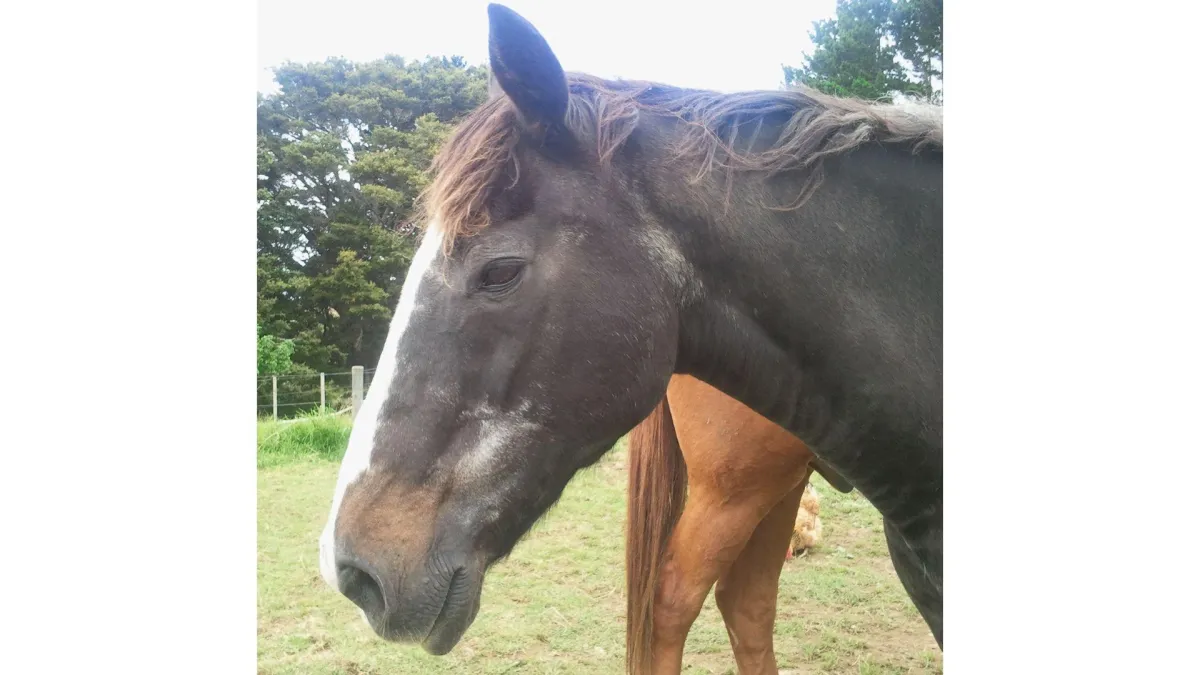
Old pets and livestock: Part One: Keeping them happy
Stiff joints, teeth problems, loss of strength and energy. If you’re getting on a bit yourself, this may sound familiar. We’re not the only species to experience the effects of ageing. Old animals deal with the same types of problems.
When animals have given us hours of pleasure, we owe it to them to make their later years as comfortable as we can, even if they have outlived their working usefulness. Whether they’ve been family dogs, working dogs, house cows, riding horses, or just entertaining paddock ornaments, they deserve good care.
Most lifestyle farmers have the space and resources to give older animals a decent retirement. Here are some practical suggestions.
Stiffness and joint issues
Stiffness is common in older animals and is often caused by degenerative changes in and around the joints.
Some mild stiffness may improve with regular gentle movement, like steady walking. Managing body weight is also important, since excess weight adds extra pressure on joints. Shelter from wind and cold weather also helps, especially for older animals.
In horses, a good waterproof cover during wet and cold weather can make a big difference. Check covers regularly to ensure they don’t cause rubbing or leaks.
If stiffness or lameness is ongoing or severe, veterinary advice is important. There are anti-inflammatory treatments and nutritional supplements that can reduce pain and improve mobility.
Dental problems in older animals
Tooth wear is a common problem in ageing livestock. Worn, loose, or missing teeth make grazing and chewing more difficult. Watch for:
Excess drooling
Dropping feed while eating
Gradual weight loss despite access to feed
It’s easy enough to check the incisors, but the molars and cheek teeth are harder to examine. If you suspect dental issues, ask your vet or an equine dentist to take a look.
Older horses are particularly prone to sharp enamel edges on their cheek teeth, which can cause ulcers on the inside of the cheeks or tongue. A routine dental float every year or two can improve chewing efficiency and comfort.
If you’d like a better understanding of common issues and how to manage them, our Teeth and Tooth Problems course covers signs to watch for and what to do across all major livestock species.
Gradual weight loss despite access to feed
It’s easy enough to check the incisors, but the molars and cheek teeth are harder to examine. If you suspect dental issues, ask your vet or an equine dentist to take a look.
Older horses are particularly prone to sharp enamel edges on their cheek teeth, which can cause ulcers on the inside of the cheeks or tongue. A routine dental float every year or two can improve chewing efficiency and comfort.
Weight loss in older livestock
Weight loss is common in older animals and often has more than one cause. Stiffness and dental issues can both contribute, but parasites may also play a role.
Older animals are more susceptible to internal parasites than their younger paddock mates. Strategic drenching and careful pasture management may help, particularly for sheep and goats. You’ll find more information on parasite control elsewhere on this site.
Foot care for older livestock
Ageing livestock tend to move less, and that can lead to overgrown hooves. In horses, overgrown hooves may crack or split. In sheep, goats, and cattle, feet may become misshapen or curl under.
Regular trimming is essential. Experienced stock owners can do this themselves using appropriate tools like hoof nippers or rasps. If in doubt, a vet or foot care technician can help.
If you’d like practical guidance on trimming, identifying problems, and preventing lameness, our Feet and Foot Problems course covers the basics for all common livestock species.
The bottom line
A bit of extra care can make a big difference to an old animal’s comfort. Most older livestock can enjoy several more good years if their needs are met.
But there does come a time when the kindest choice is to say goodbye. When that moment arrives, euthanasia can be the final act of care and compassion.

